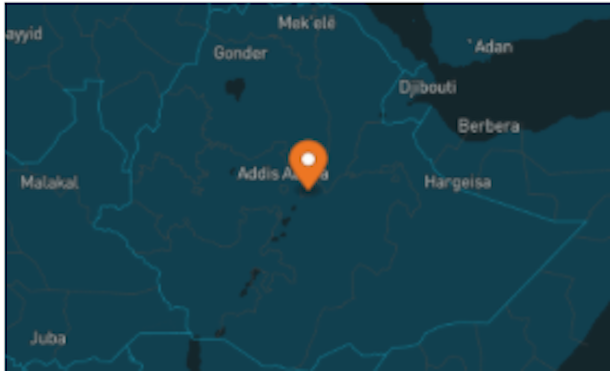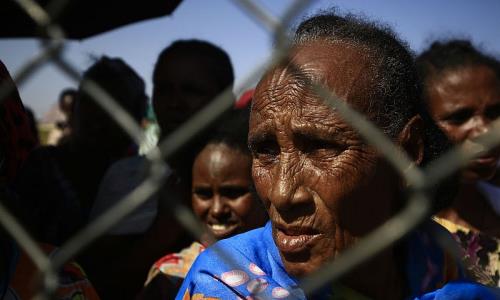Fighting between the Ethiopian army and Tigray forces has arrived near the region’s biggest city, home to half a million residents. Addis Ababa should pause hostilities, all sides should minimise harm to civilians and the AU should step up efforts to avert further bloodshed
 A humanitarian catastrophe may soon unfold in Mekelle, the capital of Ethiopia’s Tigray region. Following the expiry of a 72-hour federal ultimatum demanding the Tigray government either surrender or face attack, Prime Minister Abiy Ahmed announced he had authorised the Ethiopian army to begin an assault on the city. The cost of a clash between two heavily armed forces in a metropolis of about 500,000 inhabitants could be staggering. But it is not too late to avert more civilian deaths, nor to avoid a bloody confrontation that could inflict lasting damage to the country. Following the African Union’s lead, the U.S., the European Union and the UN Security Council should urge Addis Ababa to suspend the assault and convey to all sides that an already blood-soaked military campaign would be enormously damaging to the country’s well-being and international repute.
A humanitarian catastrophe may soon unfold in Mekelle, the capital of Ethiopia’s Tigray region. Following the expiry of a 72-hour federal ultimatum demanding the Tigray government either surrender or face attack, Prime Minister Abiy Ahmed announced he had authorised the Ethiopian army to begin an assault on the city. The cost of a clash between two heavily armed forces in a metropolis of about 500,000 inhabitants could be staggering. But it is not too late to avert more civilian deaths, nor to avoid a bloody confrontation that could inflict lasting damage to the country. Following the African Union’s lead, the U.S., the European Union and the UN Security Council should urge Addis Ababa to suspend the assault and convey to all sides that an already blood-soaked military campaign would be enormously damaging to the country’s well-being and international repute.
It is not too late to avert more civilian deaths, nor to avoid a bloody confrontation that could inflict lasting damage to the country.
Civilians in Tigray have paid a heavy price since the conflict began on 4 November. More than 40,000 refugees have fled west Tigray towns such as Humera and Dansha into eastern Sudan, with some having to swim across rivers to get to safety. According to the United Nations, at least 600,000 people in Tigray depended on food aid before the conflict and have not received their rations this month. Fuel and other essentials are also running low in Mekelle. Thousands have died in the fighting, including many civilians as well as security forces. The communications blackout and blockade of air and road access to the region from within Ethiopia is affecting the humanitarian response. Federal forces and Sudanese troops are reported to have shuttered Tigray’s main external supply line through eastern Sudan.
All sides are reported to have committed atrocities. An Ethiopian Human Rights Commission preliminary report blamed Tigrayan militia for killing hundreds of mostly Amhara civilians in Maykadra town in west Tigray on 9 November. Tigrayan refugees in camps have reported atrocities by Amhara militia who have been fighting alongside the federal military, including in that same town.
All sides are reported to have committed atrocities.
Federal officials in Addis Ababa argue they are acting to bring to heel rebellious Tigrayan leaders whom they accuse of undermining stability across Ethiopia since they were squeezed out of power at the national level in 2018. They maintain that the Tigray People’s Liberation Front (TPLF), Tigray’s ruling party, started the war by killing dozens of soldiers in an attack on a federal military base on 4 November, and that Tigrayan leaders’ objective is to ensure they enjoy immunity for “past and present misdeeds” and continue to exercise control far in excess of the TPLF’s limited nationwide support. They characterise the conflict as a “law and order operation”, which they predict will end rapidly.
Addis Ababa is intent on securing a military victory and rejects the idea of negotiations, saying that Tigray’s leaders cannot be allowed to get away with attacking the national military and violating the constitution, which it claims occurred when Tigray ran a regional election in September in defiance of federal rulings. Officials in Addis Ababa argue that allowing the TPLF to get away with its actions would set a destabilising precedent that would incentivise future acts of rebellion. They claim that entering into dialogue would reward the illegal actions of the TPLF, whose leadership they now label a “junta” or “clique”, for the 4 November attacks, which they describe as a “treasonous act”. On 27 November, Abiy met three envoys appointed by AU chair Cyril Ramaphosa and told them he would not engage in talks with the TPLF. He said dialogue with Tigray’s ruling party would “nurture a culture of impunity with devastating cost to the survival of the country”.
The likely bloodbath that would ensue would deepen the enmity between those facing off against each other and risk further alienating swathes of the civilian population in Tigray.
Although the Abiy administration has serious, legitimate grievances against Tigray’s leadership, these cannot justify a course of action that carries enormous political and humanitarian risks. An attack on Mekelle that does not allow enough time for civilians to leave the city or, in the event they do not leave, fails to discriminate between them and combatants, would be a clear violation of international law and would badly damage the Ethiopian government’s international reputation. The likely bloodbath that would ensue would deepen the enmity between those facing off against each other and risk further alienating swathes of the civilian population in Tigray. Tigrayan officers, civil servants and others reportedly are being ethnically profiled outside of Tigray, and many echo the Tigrayan leaders’ claim that this is an attack on the entire group, a sentiment that may seed support for secession.
Given what a military offensive by Addis Ababa – even one that is successful on its own terms – would entail and what it would provoke, all sides should accept a deal to suspend hostilities. AU chair Ramaphosa, who has consistently called for talks, should appeal to Prime Minister Abiy to scrap or at least extend the ultimatum his government issued. The chances of a negotiated agreement to end the fighting, let alone reach a longer-term solution to a bitter constitutional dispute, are vanishing quickly, given Addis Ababa’s determination to secure control of the city and bring TPLF leaders to justice. Although it has lately called for talks, the TPLF, too, raised its own obstacles to dialogue before the conflict by declaring the federal government illegitimate. Ethiopia’s partners, from regional leaders to the AU to the EU and UN Security Council members, should not give up in pointing out to Abiy’s government that Ethiopia’s problems ultimately need to be resolved politically, through talks, and not through force.
The most urgent need now is to save lives.
The most urgent need now is to save lives. Entering a heavily populated metropolis with artillery and air power, as an Ethiopian military spokesman warned federal forces will do imminently, would exact an enormous, intolerable toll on civilians and badly damage Ethiopia’s international repute, at a time when voices of concern from many of Ethiopia’s partners are growing. Addis Ababa should agree to pause hostilities and, whether or not an offensive goes ahead, all sides should strictly respect international law, which means doing everything feasible to avoid or minimise loss of civilian life and refraining from using civilians as human shields. In parallel to efforts to avert a humanitarian crisis, Ethiopia’s partners should continue to press the message that the answer to the country’s deep political fault lines will not come on the battlefield.
Source: Crisis Group






























